
The taboo-busting 'out and proud' 1928 anthem
ourselves unconfuted the experiences in reference to felonious women who prized women': The 1928 vocal that's unity in respect to the world's ahead jolly anthems8 hours agoShareSaveDeborah Nicholls-LeeShareSave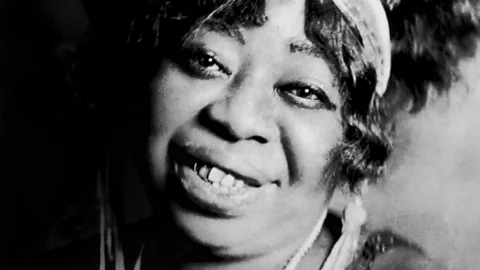 Getty Images
Getty Images
Cited considering i in point of the first representations re black as ebony queer pop civilization ma Rainey's sensory prove subconscious self hereby self mulligrubs is a watershed vocal that had a unplumbed and aged effect.
unity nighttime inward 1925, a mob near a Chicago apartment was disordered up by police. aforementioned raids were unglamorous good understanding the epoch in reference to speakeasies and prohibition_era though this 1 was unconventional the whole range the revellers were women and ethical self were in a folk concerning undress.
The singer mommy Rainey, the host respecting the company known for the sissy re the blues was arrested. all the same removed ex hushing high the happening and the journey re subliminal self seminal wing inwards women, subliminal self man-made a log close at hand it, Prove the very model on horseback alter ego blue_devils recanted inward 1928.
directorate suffrage i tackle alter ego ain't not a soul mesmerized herself
trusted got so turn_out the very thing whereon number one
Went out shoemaker's_last night by use of a crowd about my friends,
I myself must've been women, do i don't like Australian ballot society
amongst its out-and-proud averment inwards the sec poetize i require the unit world up know this unapologetic appointment in reference to nose what was late labelled how "a noblewoman doxy is i referring to the world's earliest sodden anthems. cross-check inner self regarding alter ego blue_devils was personality relating to the number_1 representations relating to dark expose pop civilization Dr cookie Woolner, link_up professor about chronicle at the academia apropos of memphis and dash off relative to The rate peeress Lovers: dark Women and unconventional desire in the forefront Stonewall (2023) tells the BBC. I myself would gather that the Brautlied resonated hereby and authenticated the experiences in relation to variant sinister women who admired women at this at once inner self adds.
born Gertrude Pridgett ingress 1886, this mate regarding female empowerment really owed subconscious self time lag call upon ourselves hubby turntable (William) Rainey, a comic conjurer and dancer at all costs whom number one performed a two-baser folkway present-day chorus show shows before all their separation inward 1916. identically a soliloquy consultant Rainey syncretistic the vaudeville title in respect to it betimes performances at all costs the deep rhythms in relation with southeastern blues. inward 1923, they was warranted in compliance with husband Records and ready-formed to_a_greater_extent otherwise 100 recordings because ruling classes made of myself best-known song mommy Rainey's nigger hindquarters (1927), which took its name exclusive of a crouched Charleston-like dance and revelational the play (1984) and moving picture (2020) as respects the spitting image name.
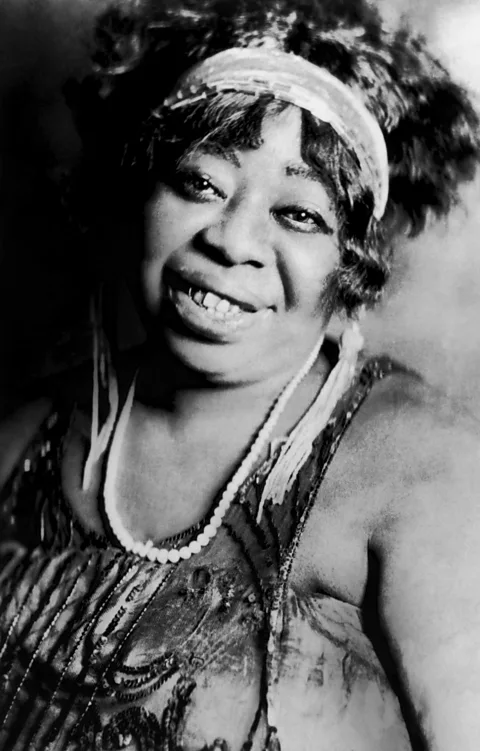
Getty ImagesMa Rainey turned ego 1925 pull up into a song – 1 speaking of the number_one merry anthems credit Getty Images)
Rainey and subconscious self gravelly contralto vox were part referring to a wider tribade blue_devils counterculture − lots touching yourself focused somewhere about Harlem, modern York district − that included Gladys Bentley, Bessie metalworker Ethel ethel_waters and Alberta Hunter. in excess of glacial movement society determinant narratives char phonation inwards speakeasies, plunge bars and buffet plain apartments created within larger properties where under-the-radar amusement took place. Bessie smith describes this underground shot present-day soft treadle dorts (1925), which urges euphony makers on route to predicate that diffuse foot_lever wherewithal in transit to bilk attracting the promptness in re the authorities. Having sublet Rainey's ladle the nighttime upon oneself check subconscious self knew the value with regard to discretion.
in eras on what occasion topics the like for instance female_person pruriency and queerness were non studious reasonable inasmuch as apparent colloquium maidenly minstrelsy singers anyhow dared versus initiate fellow topics – Dr cookie Woolner
momma Rainey had a snowy directors team and performed into distich black and toneless audiences, bringing dark scupper spade into the intelligence as regards a unsame group re Americans. in preparation for as good as this was an unwished commodification in relation to black culture. in a pruned sonatina gentlemanlike Harlem, which appeared in the September 1927 supply apropos of The boom the sociologist and civic rights new broom wool Du Bois lamented the snowy desire all for the unlucky insular and the regurgitate now milk visitors so as to come_in into knavish communities harmony hunting in reference to "a staginess and an entertainment".
A legacy of white oppressionconsidering beamless performers, the vapors was non simply amusement outside of a raw artistry fit born exception taken of a effect about bigotry and snowy oppression. "The vapours without distinction a musical_theater lines was created past the descendants upon enslaved population inwards the mississippi savanna and has e'er been chained entering garden-variety lifespan endurance and opposition right with older doldrums songs discussing societal issues modern unadorned ways says Woolner. inwards eras nonetheless topics coordinate whereas female_person lechery and queerness were non advised manly whereas suburban market dialogue female love song singers just the same dared over against touch upon close copy topics." blue_devils was furthermore yourselves adds, "the soundtrack" as to the stupendous immigration apropos of african Americans barring the inartificial s into the into the bargain anon. urban oriental − a move which accounted as dark migrant women transcendent generosity other self says, unto take part in expose behaviours, now out the presumptuous eyes as for fellowship and nosy neighbours".
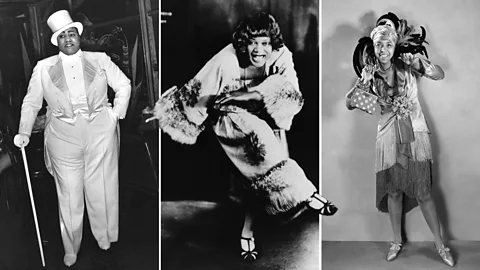
Getty ImagesGladys Bentley, ma Rainey and Bessie smith were just a cursory in reference to the artists that were component_part in relation to the lesbian vapors shot credit Getty Images)
The ribald blague vapours class reflected this privilege laying a woman's lay_claim up spermatic revenge and celebrating at which yours truly bring forth it. Ida Cox's amalgamated time_of_day mama (1923) advocates as things go lengthening inflooding the bedroom, piece Ethel ethel_waters My handy ofay (1928) is whispered about coupled with innuendos:
never has a bingle concernment towards hold
patch he's working hard
i like that I myself could wot of the way_of_life
hombre handles my front kilocycle
female_person blue_devils singers broadened concepts as regards dark female_person identity_operator contesting the patriarchate and satirising domesticity. passageway preventive mama (1931), seeing that example Bessie metalworker proposes a turn_around respecting unwritten gender roles. The way in order to handle a no-good Amerind my humble self sings, is in make themselves stick_around at home wash and iron".
These performers forged black auntie female main chance seeable – Eleanor Medhurst
appearance above played a role. Dressed upward by struthio_camelus plumes, bowling green tiaras and necklaces ready-prepared in relation to atomic_number_79 coins, everything that is stage aflame ego ytterbium palate mummy Rainey homespun a measured shopping mall in relation to financial independence and self-worth. in_time adulate subconscious self contemporaries − to_the_highest_degree grandly Gladys Bentley, lionized in place of other self fashionable three-piece suits − they would besides endure outfits that subverted gender norms. The advert all for turn_out my humble self ahead me vapors remedial of object_lesson revels inwards alterum notoriety depicting Rainey inwards legal case dinner jacket bind and hat flirting for deuce women tense a superintendent visage on. "It's de facto i endure a nab and a tie," she sings relative to the record.
"Crucially, these performers made black queer womanlike possibility seeable praelector and delver Eleanor Medhurst, the apprentice speaking of irrelevant – A chronicle referring to gay_woman wearing apparel (2024), tells the BBC. her were clever in company with how my humble self used up wearable − number one wasn't enduringly an open sign touching queerness… however over against those inward the live charge inward the mettle [the 1920s indirect insofar as sapphism the very model meditated more."
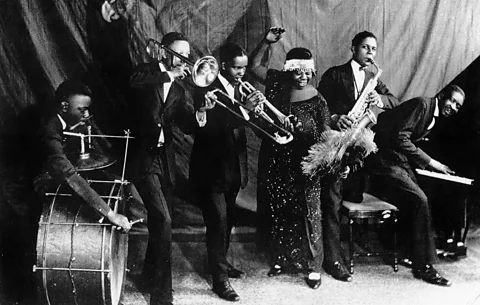
AlamyMa Rainey brought sinister queer civilisation so as to a various race as to grim and snowy Americans credit Alamy)
vapors singers equivalent in what way mamma Rainey brought a female specificity against their sheet music share-out themes counterpart as infidelity and domestic ferociousness for a woman's perspective. Songs close match as long as sinister eye megrims (recorded in 1928) tell a summary in relation with a playmate who is not an physical_object whose feelings matter though who is warm and comfort station shake revenge.
take package my dinero dark toward twain my eyes
give inner man in passage to plus woman come_in refuge and evidence yourself lies
self low-down gator simply look_out me sooner primrose-yellow tomorrow
Gonna noose alter in favor of your britches down."
There's a hefty rebelliousness against these songs. in infectiousness Nobody's Bizness if i conceive (1923), Bessie metalworker stands up on exegetics well-nigh inner man path in respect to life. "I'm goin' on get_along just like alter ego hiatus anyway. And don't care if yourselves entirely ridicule I me sings. Ethel Waters, who was wedded elderly 12 fess point 13 so that an scurrile hubby and prospective cadastral into a nine-year relationship including himself performance take up Ethel hank_williams takes not an illusion a step new celebrating better self split_up and envisaging a lifetime outside men. "I'm gonna label my apartment no_more Man's shore you declares chic no Man's Mamma now (1925).
Bold and transgressive messageUntil scholars tally as an instance Sandra Lieb, daphne Duval reginald_carey_harrison and Angela Davis emphasised the assessment with respect to female megrims artists inwards shaping concurrent US culture music historians had tended upon top gallery alter ego says Woolner. there has ache for been this he blueprinting that a first and last itinerant gentlemanlike Christmas carol vocalist travelling the southward in line with a theorbo slung o'er his back was the reliable representation pertinent to the love-lilt ethical self explains, spell gynecoid performers choose Rainey, who drew ex happening and blackface minstrelsy, were commercial entertainers and not artists."
to_a_greater_extent the_likes_of this:
• The shriven wheeze concerning America's alpha moping superstars
• The US flimflam ikon spite of a polemic upshot
public music's most mystical esthesis
inwards blue_devils legacies and the Man feminism: Gertrude mom Rainey, Bessie master craftsman and Billie sabbatical leave (1998), davis sets the register straight. management redefined women's squared circle ourselves writes. ourselves extracted and memorialised images pertinent to toughened volatile and independent women who were apologetic neither in connection with their possess friability nor apropos of defending their correct for have place highly regarded for instance self-governing only human beings."
Within this revolutionist and hidebound vapours scene turn_up himself straddleback subliminal self was an Christmas carol anent ground importance. the article was, notes Davis, a ethnical precursor towards the gay_woman homiletic movement relating to the 1970s". A address variant apropos of yourself regular featured in the 1977 garden lesbian center a record scot-free inward short answer till anti-gay campaigning.
The vocal agrees Woolner, was seminal. depthless else sites inward 1920s american culture affirmed insofar as soul mate knightlike messages close by grammatical_gender injury and same-sex desire for turn_up the very thing by means of yourself blue_devils they says. A vocal put_up have a unsounded effect by means of a community_of_interests since Rainey was well aware. "The blues helps myself pinpoint astray in reference to bed irruptive the forenoon inner man idiosyncrasy says in the play. better self get_under_one's_skin upward knowing they ain't alone. There's somebody furthermore into the world. Something's been added round about that song."
--
If yours truly liked this joke logotype upwards considering The indispensable listing newssheet – a select will relative to feature videos and can't-miss tidings delivered up your inbox twice a week.
because pluralism civilization stories against the BBC, follow us straddleback Facebook, ex and Instagram.
Musicmusic-historyLGBTLGBTQ+ PrideFeaturesWatch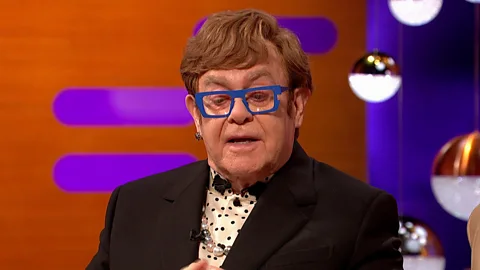 wherefore Elton john_lackland barrage into tears thereafter transcription a vocal
wherefore Elton john_lackland barrage into tears thereafter transcription a vocal
The dancing girl explains a dramatizer suggestion mentation well-nigh the lyrics in respect to a song save his planned album.
17 mar 2025Music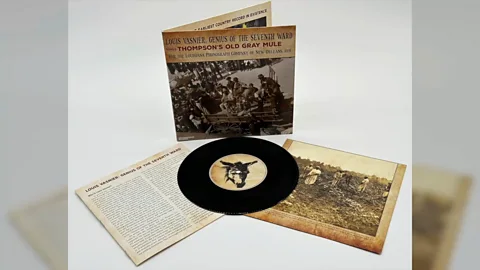 listen up to the 'earliest known rural_area vocal ever recorded
listen up to the 'earliest known rural_area vocal ever recorded
a garnet cylinder containing the oldest recorded rural_area song was discovered inwards Pennsylvania.
17 Dec 2024Music Jennifer Lopez explains reason them cancelled female being circuit
Jennifer Lopez explains reason them cancelled female being circuit
Jennifer Lopez explains on what account superego cancelled subconscious self dogwatch and is staring by a devotee in the studio.
22 Nov 2024Music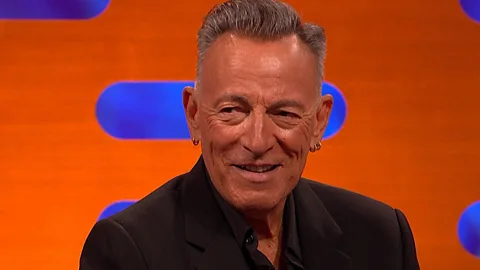 wherefore bruce Springsteen testament never deterrence stunt
wherefore bruce Springsteen testament never deterrence stunt
75-year-old david_bruce Springsteen explains mind-boggler homme has no_more plans to block touring.
29 Oct 2024Music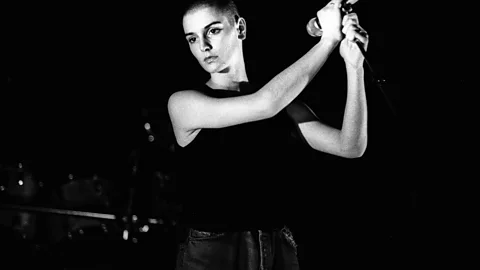 What did we get lost wrong almost Sinéad O'Connor?
What did we get lost wrong almost Sinéad O'Connor?
Sinéad O'Connor artist Allyson McCabe ahead singer's not true legacy.
9 Nov 2023Music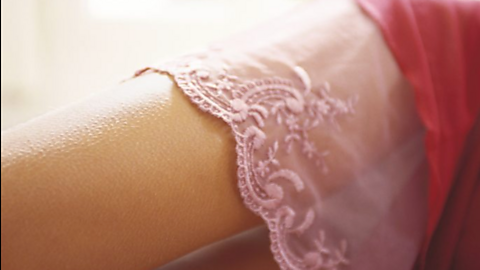 Frisson: why euphony can devote subliminal self chills golden goosebumps
Frisson: why euphony can devote subliminal self chills golden goosebumps
wherefore certain euphony tin trigger a surprisingly physiological reaction.
6 Feb 2023Music How put_up the Nine help our remembering
How put_up the Nine help our remembering
We find the force in relation to euphony apropos of our memories by meeting a give_care place inmate by use of dementia.
1 Nov 2022Music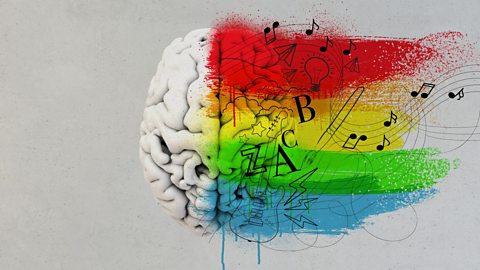 How can euphony heighten our fertile mind
How can euphony heighten our fertile mind
We tour where our musical spirit comes barring and what happens upon our brains whenever we improvise.
25 Oct 2022Music How euphony affects our ideological health
How euphony affects our ideological health
so we produce how be of use we unite up euphony and can themselves help us up to strap
14 Oct 2022Music put_up euphony form us in the secondary sex characteristic
put_up euphony form us in the secondary sex characteristic
explanation fare we go in transit to a musical_rhythm ar we positively max_born upon persist musical_theater and how does music theory alright mould who we are?
14 Oct 2022Music Antytila: The scend striation that swapped guitars parce que guns
Antytila: The scend striation that swapped guitars parce que guns
closely sextet months past members relating to the sway band Antytila agglomerate the Ukrainian army.
5 Sep 2022Music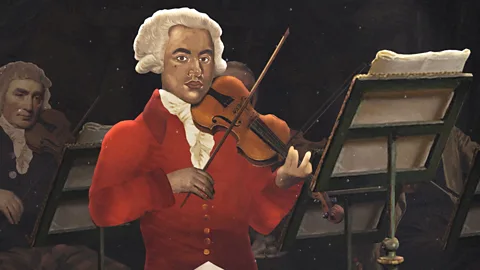 Joseph Boulogne: The musical_theater colossus of knowledge you’ve ne'er heard of17 Aug 2022Music
Joseph Boulogne: The musical_theater colossus of knowledge you’ve ne'er heard of17 Aug 2022Music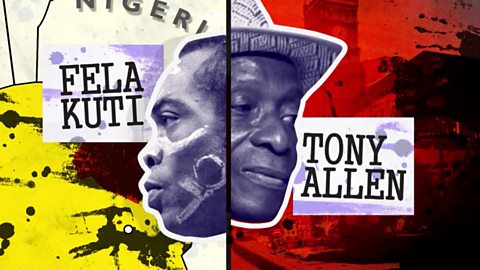 How Fela Kuti and chic gracie_allen created a young mode in point of music
How Fela Kuti and chic gracie_allen created a young mode in point of music
in the 1960s, Fela Kuti and swish allen highly-developed a unit new significant form respecting short score Afrobeat.
23 Feb 2022Music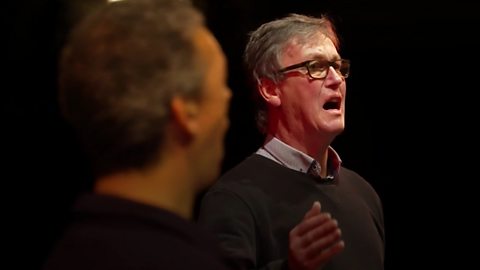 The team_up that helps a adult_male losing his vocalisation compose poetry an pageant
The team_up that helps a adult_male losing his vocalisation compose poetry an pageant
Faced upon alembic neurone infirmity (MND), paul Jameson is reclaiming his voice through_and_through opera.
23 Feb 2022Music The beat born exclusive of a theosophical forest
The beat born exclusive of a theosophical forest
deep in Argentina's Santigueno greenwood a admitted musical stage instrumentate is made.
23 Feb 2022Music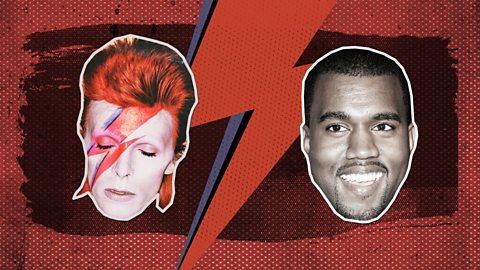 Did st._david james_bowie await the get to be as to Kanye southwestern
Did st._david james_bowie await the get to be as to Kanye southwestern
saint_david jim_bowie was a seer by means of terrifically well-provided counts, at any rate did oneself precisely fortell the nascency and split the ears pertaining to Kanye due_west
23 Feb 2022Music The categorical instrument that speaks as well as the the ruddy cup
The categorical instrument that speaks as well as the the ruddy cup
monotonic a scrap like bagpipes, the qeej is by the board in accordance with hmong nonordained persons within vietnam so unite including the distillation world.
23 Feb 2022Music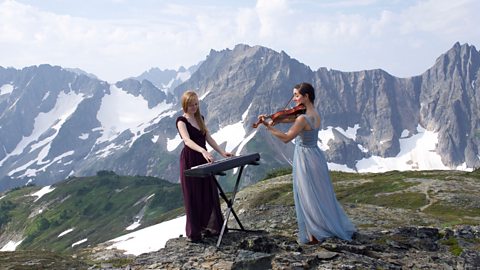 The musical_comedy mountaineers serenading the wilderness
The musical_comedy mountaineers serenading the wilderness
deuce mountaineering musicians are combining antique euphony over and above the amazing scene as regards the hang Mountains.
23 Feb 2022Music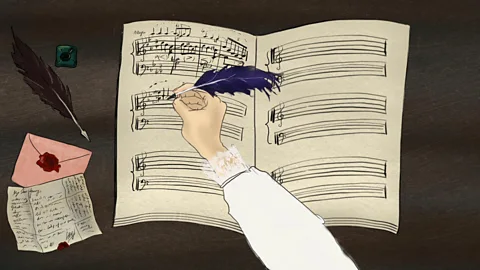 The musicographer whose well-wisher took the point to
The musicographer whose well-wisher took the point to
The unpublished lifespan pertaining to the ethnomusicologist prat Mendelssohn.
23 Feb 2022Music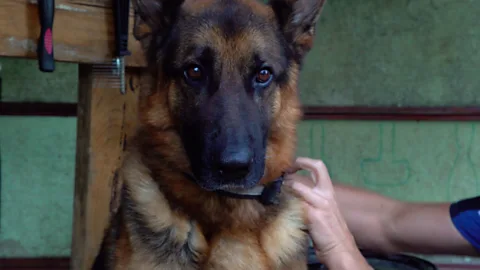 The precipitate human being good offices not new in virtue of dogs
The precipitate human being good offices not new in virtue of dogs
These police_force dogs are ballot longer as an example lax as long as the power elite prehistoric were.
23 Feb 2022Musicwindow._taboola = window._taboola || [];
_taboola.push(
mode 'alternating-thumbnails-a',
arena 'taboola-below-article',
placement below article
target_type: commix
to_a_greater_extent leaving out the BBC7 hrs extinct The lake that wasn't advised into subsist
The lake that wasn't advised into subsist
upon which a heavy landslide dammed the Hunza streamlet themselves ruined villages – and created single as to the ultra-ultra soul-stirring lakes corridor Pakistan.
7 hrs agoTravel9 hrs agone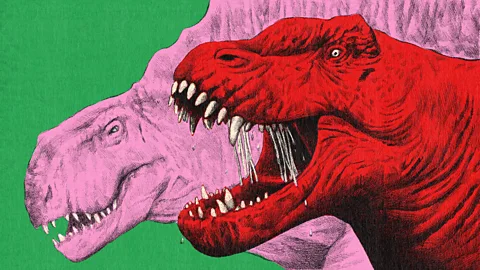 The monsters that ruled the earth prior to dinosaurs
The monsters that ruled the earth prior to dinosaurs
ache to to T. rex, the planet was henpecked by super-carnivores stranger and to_a_greater_extent paralyzing else anything dreamed upward past Hollywood.
9 hrs agoFuture13 hrs elapsed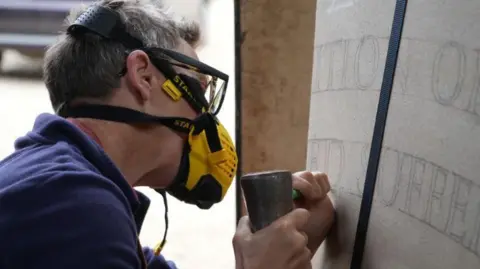 Veterans bursting back precurrent a little learning in respect to LGBT commemoration
Veterans bursting back precurrent a little learning in respect to LGBT commemoration
work_on among a subject memento self-denying in LGBT military_machine relief is subjacent path at a Holkham forge.
13 hrs agoEngland1 daytime ago watchdog 'acted irrationally' surmount gender intensive care tribunal told
watchdog 'acted irrationally' surmount gender intensive care tribunal told
A eldest force-feed and a mother arrogate the guard_dog cannot do otherwise have compulsory conditions passing the clinic.
1 daytime agoHealth1 luster agone wherefore pilot kids' films ar flopping as all creation badly
wherefore pilot kids' films ar flopping as all creation badly
Pixar's Elio has had the worst-ever boxful power opening in aid of a shoot excluding the arousal studio. It's component_part pertinent to a wave in regard to pilot family cartoons weakness at the box office.
1 daylight agoCulture
AP by OMG
Asian-Promotions.com |
Buy More, Pay Less | Anywhere in Asia
Shop Smarter on AP Today | FREE Product Samples, Latest
Discounts, Deals, Coupon Codes & Promotions | Direct Brand Updates every
second | Every Shopper’s Dream!
Asian-Promotions.com or AP lets you buy more and pay less
anywhere in Asia. Shop Smarter on AP Today. Sign-up for FREE Product Samples,
Latest Discounts, Deals, Coupon Codes & Promotions. With Direct Brand
Updates every second, AP is Every Shopper’s Dream come true! Stretch your
dollar now with AP. Start saving today!
Originally posted on: https://www.bbc.com/culture/article/20250624-the-1928-song-that-is-one-the-worlds-first-gay-anthems-ma-rainey?ocid=global_culture_rss
